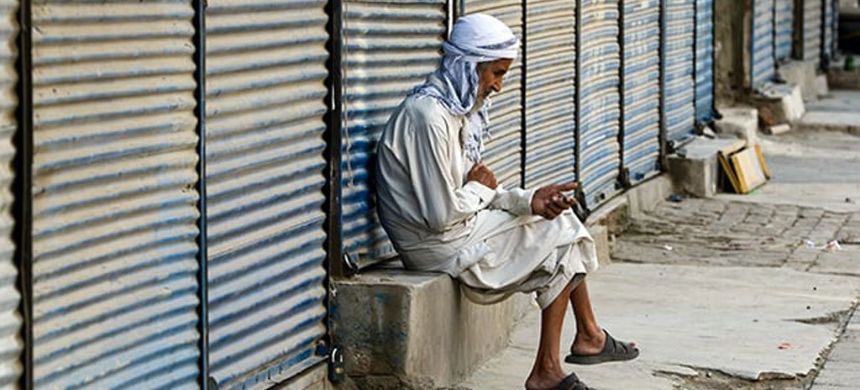In protest against the government’s tax reforms, traders across Pakistan are holding a nationwide strike on Wednesday, backed by various traders’ associations and political parties.
Key political supporters include Jamiat Ulema-e-Islam Fazl (JUI-F), Pakistan Tehreek-e-Insaf (PTI), Jamaat-e-Islami (JI), and Awami National Party (ANP). Anjuman-e-Tajiran Karachi announced a complete shutdown of business in Karachi today.
Javed Shams, president of the All Pakistan Anjuman-e-Tajiran’s Sindh chapter, voiced frustration with the political leadership, declaring that all businesses in both small and large cities of Sindh would be closed. He condemned the increase in taxes and electricity bills, asserting that the ruling class is stripping away the right to live from traders and the public. Shams also rejected the “Trader Friendly Scheme” in its current form.
The Karachi Electronics Dealers Association (KEDA) also supports the strike. KEDA President Mohammad Rizwan confirmed participation from trade unions across the country, warning that the strike might be extended if issues remain unresolved. Atiq Mir, President of the All Karachi Traders Union, described the strike as representing the concerns of citizens, not just traders, highlighting the widespread worry over inflation.
Also Read: Court halts Khanpur TMA from collecting taxes
Responding to the strike, Rana Ihsaan Afzal Khan, Coordinator to the Prime Minister on Implementation and Monitoring, stated that the government would not be pressured by the traders. He invited traders to discuss their grievances, emphasizing that Prime Minister Shehbaz Sharif has reorganized the Federal Board of Revenue (FBR) and stressed the need to bring the retail sector under the tax net.
In Punjab, cities such as Vehari have seen complete business closures following the call from the Central Traders Association of Pakistan. Major markets in Gujranwala, including the Cloth Market and Steel Market, are also closed, with widespread support from local trade associations.
In Peshawar, Khyber Pakhtunkhwa, various markets remain shut, with traders demanding the withdrawal of increased power bills and lower tax rates. Markets in Sindh, including Nawabshah and Tando Allahyar, are also observing the strike, with both large and small businesses closing in solidarity. Waqar Memon, President of the Sindh Traders Association, criticized policies like monthly tax, withholding tax, and professional tax as anti-business.
The strike has also impacted Punjab cities like Chichawatani, where markets and commercial centers are closed, with traders demanding relief from what they describe as “cruel” taxes and high electricity costs.
Meanwhile, Jamaat-e-Islami (JI) in Charsadda has called for a strike, resulting in the closure of all food shops, including hotels. JI had earlier announced a nationwide strike for August 28 to pressure the government into providing relief to the public, following a 14-day sit-in that ended on August 9 after successful negotiations over demands to reduce power tariffs and review agreements with Independent Power Producers.











